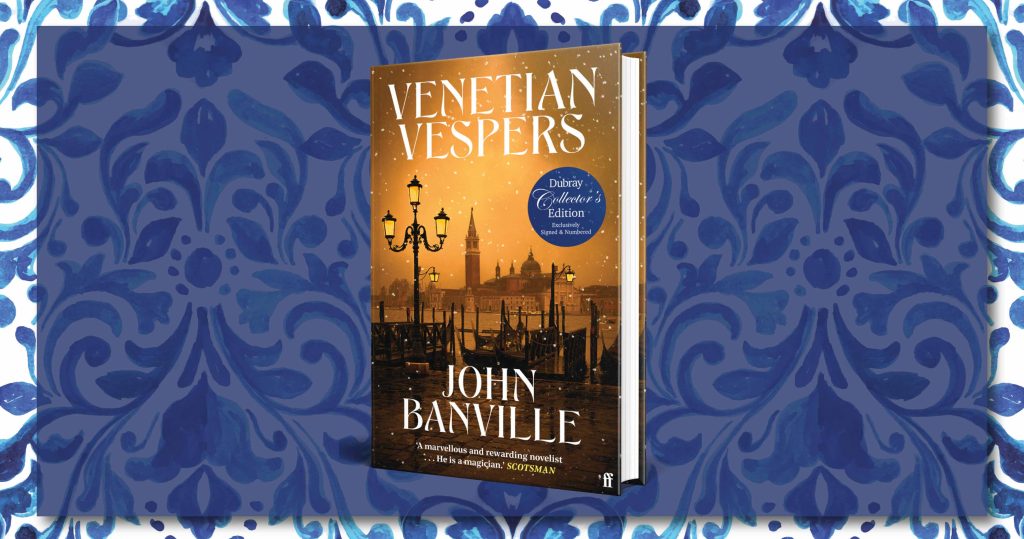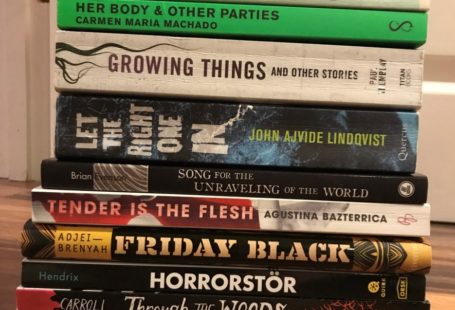By John Banville
I have a thing against Venice. In fact, I have a number of things against Venice. The avarice. The tourists. The smells. Some years ago I was strolling along one of those dim, dank alleyways near St Mark’s Square, in the company of a friend who shares my aversion to the place. Suddenly a rat scuttled past us and dived part way into a drain, leaving its long pink tail draped on the flagstones. My friend and I pointed to it and together cried, ‘Venice!’.

Of course, I acknowledge the city’s beauty and uniqueness, but even on the sunniest day I find the atmosphere in La Serenissima, as the locals like to call it, uncanny, indeed sinister. Although I visit it every year—I am on the jury of an Italian literary prize—I never feel quite at ease there. However, I always thought it would be the perfect setting for a novel. Hence Venetian Vespers.
The story is told by Evelyn Dolman, a smugly self-regarding writer who imagines himself, or used to imagine himself, highly sophisticated and worldly-wise, but who in the early weeks of 1900 comes to grief in the ‘floating city’, where he is on an extended honeymoon with his wife Laura, a wealthy American heiress.
For years I had the ambition to write a ghost story, and while the demons in Venetian Vespers are all too human, they have a ghostly presence, and seem to work otherworldy effects. There is also a pervasive eroticism in this tale of appearances and disappearances, in which powerful women pretend to be otherwise, and a powerless man imagines he is in control while in reality he is being manipulated and betrayed. And it all starts, and ends, with a scrap of black silk on a table in a deserted room at dusk. . .





